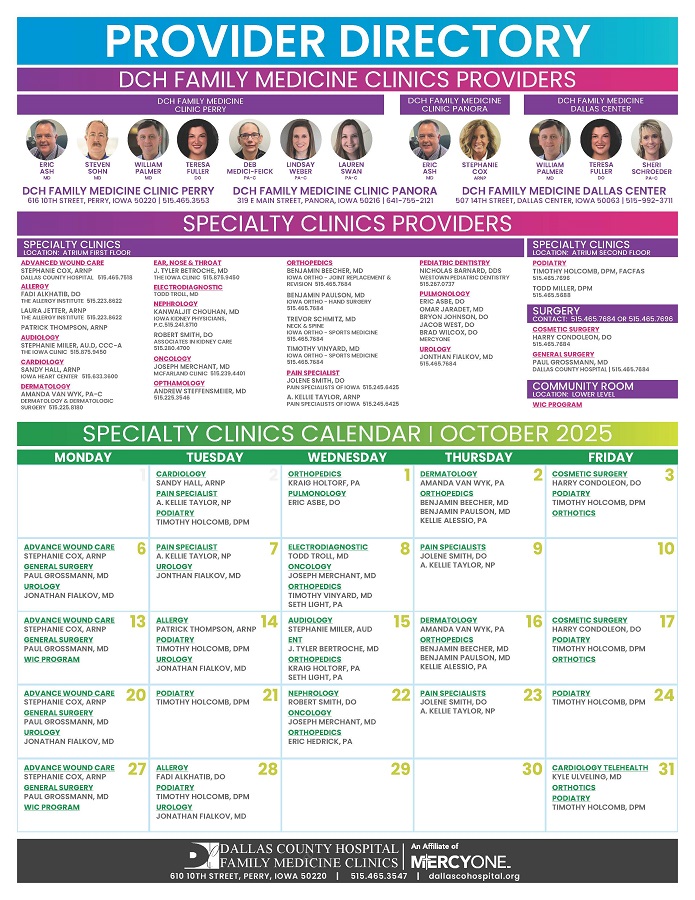Spending time in water — whether it’s swimming, boating, tubing or fishing — is a popular summer pastime and a great way to beat the heat.
However, doing so in natural bodies of water, such as lakes and rivers, comes with the risk of developing a waterborne illness.
Waterborne illnesses are caused by germs that infect people when they touch or consume contaminated water. Some of the more common waterborne germs are E. coli, cryptosporidium and Cyclospora.
These can cause unpleasant symptoms like nausea, vomiting, diarrhea, and cramps which may become serious and require hospitalization.
Even chlorinated pools, hot tubs or splashpads can still have bacteria that could make you sick.
In order to avoid becoming infected or infecting others, keep these tips in mind:
• Before swimming at an Iowa beach, check the Iowa Department of Natural Resources website to see where swimming is not recommended.
• Avoid swimming in natural water bodies after heavy rainfall.
• Shower with soap and water both before and after swimming.
• Don’t swallow water when swimming, and avoid getting any water in your mouth or nose.
• Don’t swim if you have diarrhea.
• Wash your hands after coming into contact with lake, river, or pool water before eating or touching your face.
• Take children on frequent bathroom breaks when swimming, and always wash hands before getting back in the water.
If you become sick after being in the water, especially with vomiting or diarrhea, contact your healthcare provider if your symptoms don’t improve after three days or become unmanageable.
Natalie Peters is the community health educator in the Dallas County Public Health Department.

















